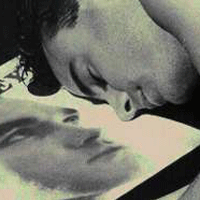A WRITER WRONGED
June 24, 2024
NME fax surfaces from 2002
Hello Moz
It's NME's 50th anniversary issue and it's brought out the magnanimous old fool in us, so we'd like to make up. We're really sorry about all that racism stuff and taking the piss about that Union Jack business at Finsbury Park - we just didn't get the point you were making to be honest. We're not the brightest bunch up here, frankly, any lyric more complicated than "Sing, sing, sing, sing, sing" pretty much goes over our heads. But we've had our Dodgy Politics Spotting Dept working on Asian Rut and National Front Disco since 1994 and this week they gave the all-clear. So let's bury the hatchet, shake hands and be men about it. Waddayasay?
Mark Beaumont, NME.



 www.morrisseycentral.com
www.morrisseycentral.com
June 24, 2024
NME fax surfaces from 2002
Hello Moz
It's NME's 50th anniversary issue and it's brought out the magnanimous old fool in us, so we'd like to make up. We're really sorry about all that racism stuff and taking the piss about that Union Jack business at Finsbury Park - we just didn't get the point you were making to be honest. We're not the brightest bunch up here, frankly, any lyric more complicated than "Sing, sing, sing, sing, sing" pretty much goes over our heads. But we've had our Dodgy Politics Spotting Dept working on Asian Rut and National Front Disco since 1994 and this week they gave the all-clear. So let's bury the hatchet, shake hands and be men about it. Waddayasay?
Mark Beaumont, NME.



A WRITER WRONGED - MESSAGES FROM MORRISSEY - MORRISSEY CENTRAL - A WRITER WRONGED
MESSAGES FROM MORRISSEY on MORRISSEY CENTRAL
 www.morrisseycentral.com
www.morrisseycentral.com












